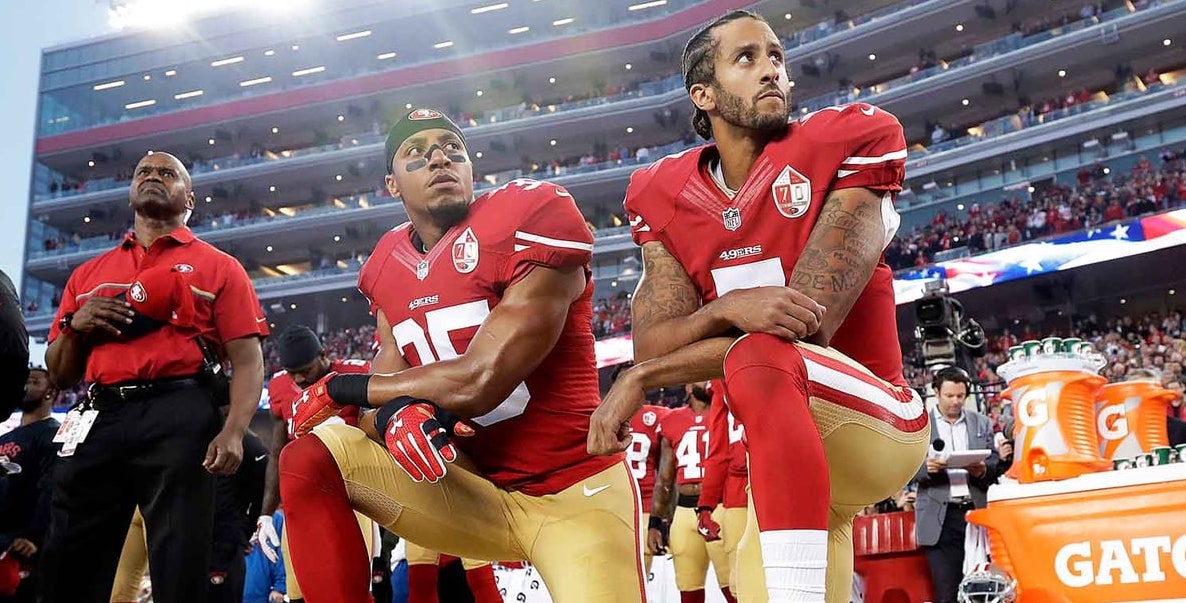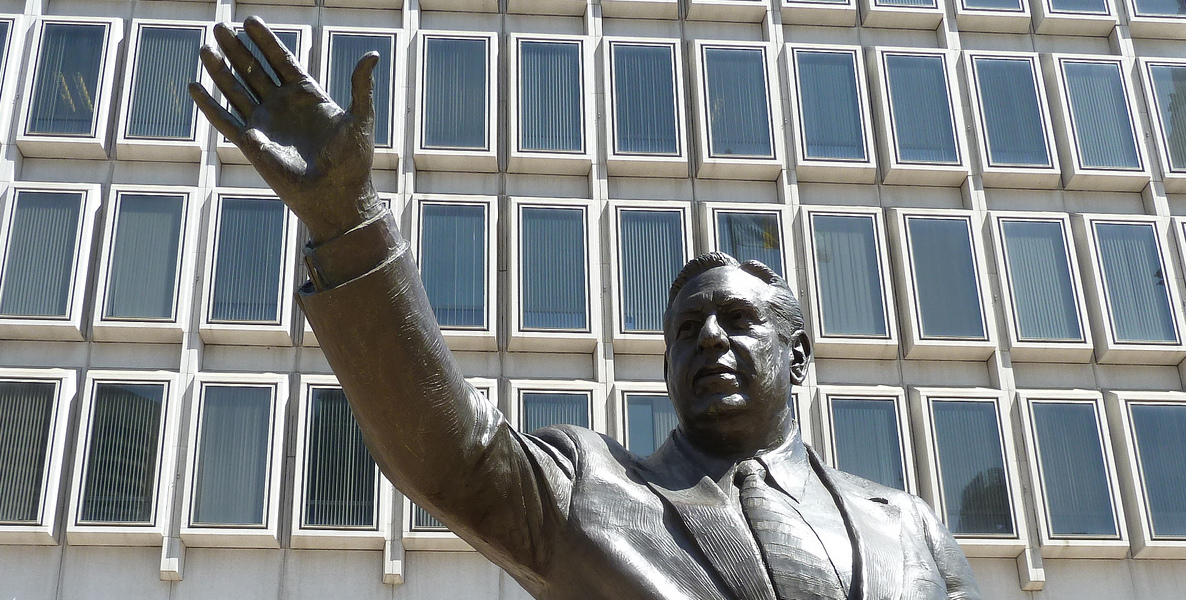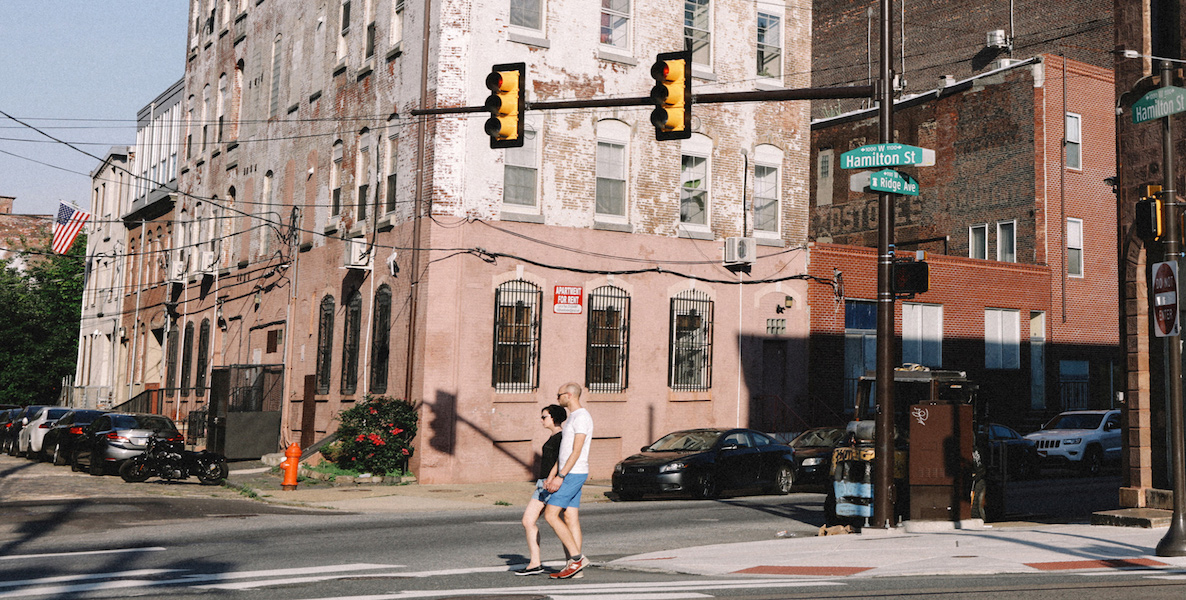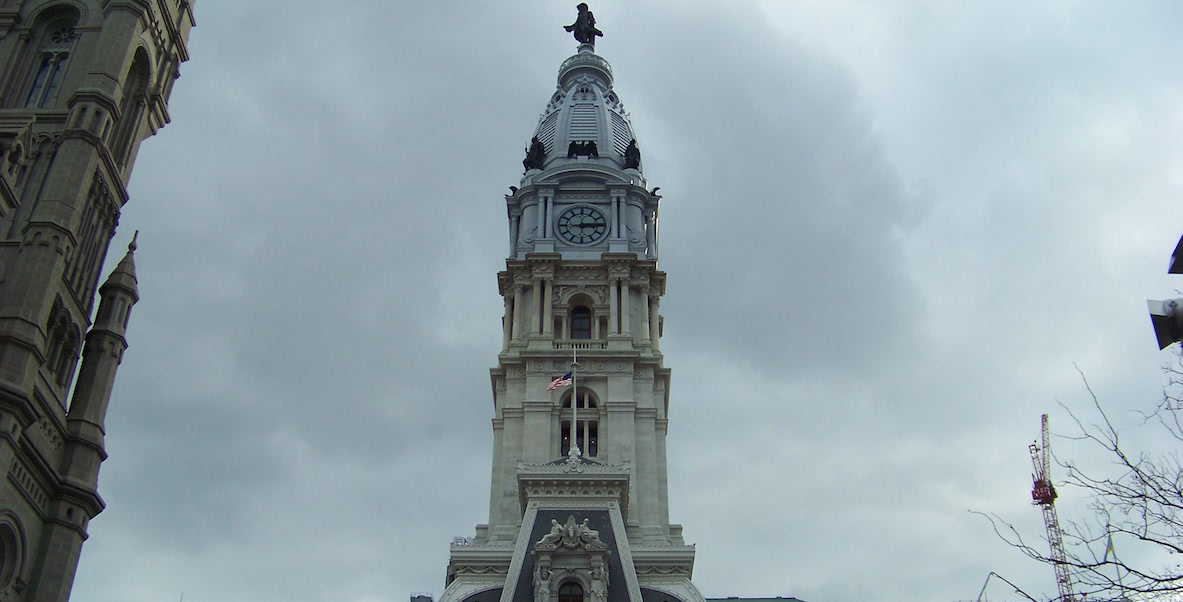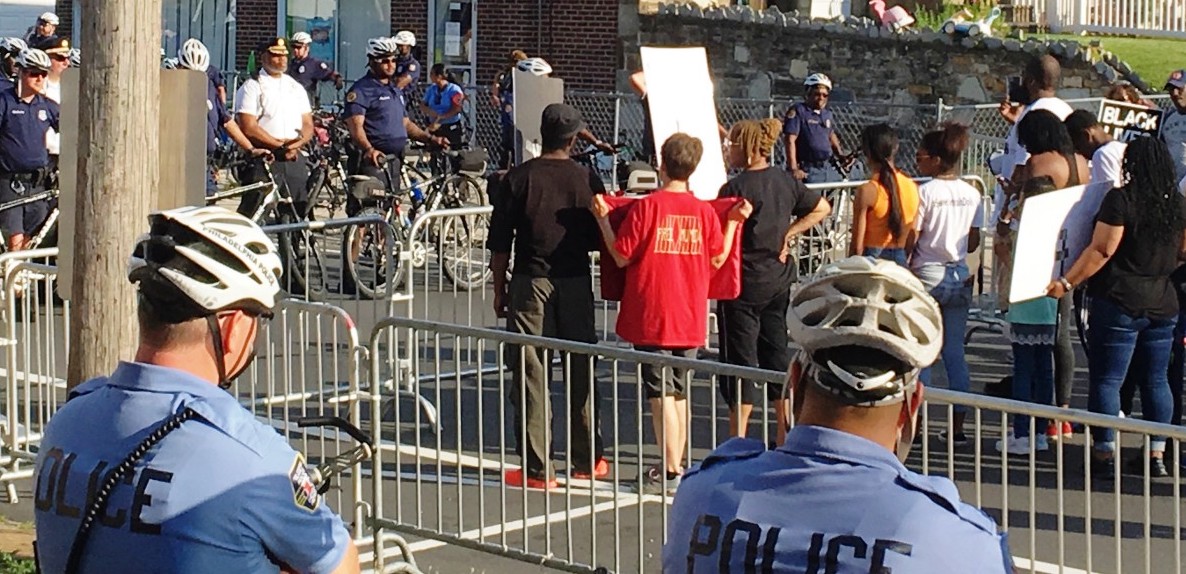There is definitely a proxy war happening between the Philadelphia police union and the city’s brewing, outraged class of progressive activists (a.k.a. Black Lives Matter) that could be, inadvertently or not, shaping the contours of the upcoming Philadelphia District Attorney race.

As a result, what had finally died down into just another localized election to pick the next city prosecutor (once the George Soros-influenced Democratic primary closed shop), has re-emerged as a potential national bellwether. In this case, it’s not so much a pre-game measurement of Democratic or progressive voter mobilization heading into 2018 as much as it is a new front in the growing clash between an aggrieved black community of residents, activists and even officers and an embattled law enforcement lobby that appears comfortably tone deaf to those concerns.
A number of battles have popped up across Philadelphia highlighting a deep chasm of resentment, tension and outright hostility between these two camps. At the moment, there’s no foreseeable resolution to it or any known endgame. What is clear is that the controversies continue, and the city, not unlike much of the country, finds itself embroiled in a stew of racially-charged politics.
After weeks of seeming to dither, Police commissioner Richard Ross on Friday announced the intent to fire Officer Ryan Pownall for recklessly shooting 30-year old David Jones.
The newly installed, but cautious and soon-to-be short lived interim DA Kelly Hodges wants nothing to do with it and prefers kicking any prosecution over to the state Attorney General. No news, yet, on whether he’ll decide to really press that hot button or just give the for-camera impression that he really cares about it.
The Philly Fraternal Order of Police chief John McNesby loses all complete cool and resorts to calling mostly black activists “rabid animals.”
Several black police officers in the city’s narcotics unit call attention to the white corporal parking his Confederate battle flag adorned car in the unit parking lot on Wissahickon Avenue. They get no response or recourse from superiors until they call a lawyer to broker some.
What is clear is that black Philly residents are about through with the city’s black political class, or those who openly claim to advocate on their behalf. The silence of City Council members in the wake of Mcnesby’s line-crossing comments was described as “deafening” by WURD listeners.
And, in the backdrop is an unending discussion over what to do with Mayor Frank Rizzo’s statue which presents itself as friendly—but, has always seemed eerily suggestive of a special Philly-segregationist style attempt to cast iron intimidation of the city’s many black citizens who walk or drive past it each day.
There is, of course, a big question mark over the next couple of months: How much will this affect the upcoming DA’s race? This might seem somewhat uncompassionate and lacking some consideration for those who’ve either lost loved ones due to these tensions or harbor understandably salty feelings about the issues above. But, it stands out as the most important question because it will determine, based on whether Democratic nominee Larry Krasner is picked or Republican nominee Beth Grossman stages an upset, how policy will be shaped around these issues and many other significant ones. In essence, it will determine where the city goes from here in terms of the raw relationship between these communities.
McNesby’s comments have obviously put that relationship on blast in a very national way—and the reactions, as well as protest of advocates like Black Lives Matter Pennsylvania’s Asa Khalif have also put networks on alert. Philly’s DA race is now back on the national political map along with the Virginia and New Jersey gubernatorial races. There’s nervousness on both sides that the other may have called too much national attention to it; the Philly FOP chief’s public nastiness might instigate the return of record progressive-leaning cash and surprisingly high turnout when Republicans don’t need that. Some Democratic strategists quietly wonder if Grossman could benefit from the rise of quiet white Philly electorate that’s watching this unfold … but not daring to talk to their black co-workers, neighbors or friends about it.
![]() What is clear is that black Philly residents are about through with the city’s black political class, or those who openly claim to advocate on their behalf. The silence of City Council members in the wake of Mcnesby’s line-crossing comments was described as “deafening” by WURD listeners—a description comparatively tame to other unflattering terms that were used throughout the week.
What is clear is that black Philly residents are about through with the city’s black political class, or those who openly claim to advocate on their behalf. The silence of City Council members in the wake of Mcnesby’s line-crossing comments was described as “deafening” by WURD listeners—a description comparatively tame to other unflattering terms that were used throughout the week.
Looking for some courage from black elected leaders, hoping they would call McNesby out, many in black Philadelphia felt cheated. And even though Mayor Jim Kenney, coalition builder that he is, finally stepped in to condemn the remarks, it was viewed as too little or too late; adding more salt on the wound was the perception that the white politician stepped out of his comfort zone for a minute to denounce the police union, but the black politicians didn’t.
To some, this might seem purely emotional. But, to black Philadelphians, it was a test of who is and isn’t going to bat for them on the regular.
For many, it’s hard to understand. What exactly is it about the Philly police union that allows it to escape the wrath of local officials, even when its chief is so brazenly wrong? How much influence does it really have? Why won’t the City Council convene special sessions on these topics and others, and where are the hearings exploring the need for a revision in police training, procedure and treatment of certain civilian groups?
![]() One good place to start could be the Philadelphia Board of Ethics online campaign finance contribution tool showing how well the Fraternal Order of Police Lodge 5 Political Action Committee is spreading its influence. This isn’t to say elected officials in the city are being bribed (… per se) to remain relatively silent on these issues. But, it does show that, in politics, money does continue to wield influence or, at the very least, influence who has more access than others. Here’s the most direct link, because it’s not really the most accessible resource.
One good place to start could be the Philadelphia Board of Ethics online campaign finance contribution tool showing how well the Fraternal Order of Police Lodge 5 Political Action Committee is spreading its influence. This isn’t to say elected officials in the city are being bribed (… per se) to remain relatively silent on these issues. But, it does show that, in politics, money does continue to wield influence or, at the very least, influence who has more access than others. Here’s the most direct link, because it’s not really the most accessible resource.
Exploring the local FOP’s influence might be a healthy exercise for Philadelphia, and it might start resolving these problems at a time when we don’t need them festering. For example, between 2014-2015, Philadelphia City Council President Darrell Clarke received a combined $2,500 from Lodge 5 PAC. Mayor Jim Kenney shows numerous contributions (ranging from $100 to $1,500) since 2014 from the FOP Lodge 5 PAC, including one $5,000 contribution in March 2015. Other Councilmembers, not all, receive some form of contribution from the Philly FOP. Reality Check just started its dive into the numbers and will provide more information as it’s collected in the coming weeks.
When these controversies arise, maybe we’re all asking the wrong questions. Maybe it’s where the influence trail leads us, why it’s— at the end of the day—so hard to move or take down an offensive status or, worse, fire and prosecute a cop that endangers everyone around him who doesn’t look like him.
This is all legal—the FOP Lodge has that right to express itself politically, and to put money behind it. There’s nothing unusual about that, as unseemly and quid pro quoish as it might appear. And we’re not talking huge amounts of money here. But, it points to one reason why citizens feel frustrated and disconnected from a political system they don’t see working for them or prioritizing their concerns. They wonder, in private and aloud, why it seems to work for some people and not for the mass of others.
An explanation—and perhaps, even, a solution—could be the extent of contributions to local political campaign coffers. Citizens need to know that; they must understand that these are essential mechanisms in modern American politics. When these controversies arise, maybe we’re all asking the wrong questions. Maybe it’s where the influence trail leads us, why it’s— at the end of the day—so hard to move or take down an offensive status or, worse, fire and prosecute a cop that endangers everyone around him who doesn’t look like him.
That discussion took place on Reality Check last week: Maybe average Philadelphia residents need their own version of a collective political action committee to spur the Mayor and Council and others into action. Maybe that’s just how it works, to get on the Council president’s calendar, to get a hearing or a task force or a strongly worded press release condemning the police union chief’s racial dog barking. It might seem like a cynical suggestion—but it is what it is: everyone else, including the Philly FOP, seems untouched by rigorous oversight and policymaking … and they’re the ones cutting checks. Maybe a fresh understanding and the fresh cutting of checks from new, grassroots political players could be one hell of an overnight game change we could all use.
Charles D. Ellison is Executive Producer and Host of “Reality Check,” which airs Monday-Thursday, 4-7 p.m. on WURD Radio (96.1FM/900AM). Check out The Citizen’s weekly segment on his show every Tuesday at 6 p.m. Ellison is also Principal of B|E Strategy, the Washington Correspondent for The Philadelphia Tribune and Contributing Politics Editor to TheRoot.com. Catch him if you can @ellisonreport on Twitter.
Header Photo: William Kenny


